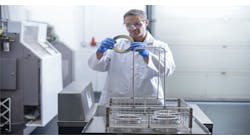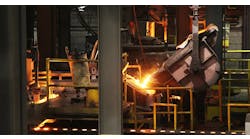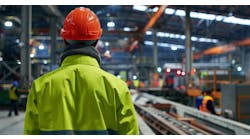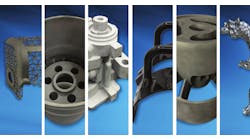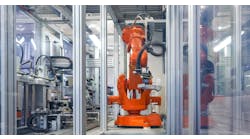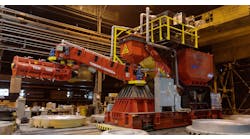We’re up to our elbows in technology in the latest issue of FM&T, high technology — or as it’s now more commonly called by those in the know, “smart technology”. The distinction is important, because whereas high tech may refer to controllers and actuators that oversee a process or an operation, smart tech oversees those processes and gathers new information, evaluates and applies that new information in order change and improve the operation.
This is more important than it may seem. As outlined in the following pages, smart tech is not an application but a new definition of information technology. Thus, diecasting can become more effective and profitable, induction-power controllers become maintenance predictors, and enterprise resource planning is accelerated into a customized management consulting service. The process technology remains in place, and necessary, but in the ether around the machines the process is being revamped, instantly and steadily. There is no need to evaluate decisions, to assess impacts. It’s done.
We are changed by these changes too, but an open question is whether smart tech makes us smarter operators, or smarter people. I don’t really have much doubt on the first point: smart tech that is applied to specific operations can deliver insights to how a process (diecasting, induction melting) works — and that information makes the operators smarter about their work, more informed about their decisions, and more clever about the choices available to them.
The second half of the question leaves me in doubt. Smart tech is the reason all of us have messages waiting for us to respond to, verifications to be cleared, and ads to be endured. Smart tech controls the appliances and utilities, and security systems, in our homes, and prompts the menus we browse to amuse ourselves if and when we are allowed a spare moment. Many people are pleased by this, but I find myself wondering if I have become the system that is being managed – and optimized.
Confirmation for my view comes from Toronto, where a controversy is brewing about a proposal by a Google affiliate to develop an urban wonderland. Google established Sidewalk Labs to implement the "smart cities” concept, and it has issued a +1,500-page report detailing its plans to make city living "more desirable and affordable with less pollution, shorter commutes, better weather and environmentally-friendly buildings," as CNN reported it. It will start with 10 buildings and 2.7 million square feet of residential and commercial space, and later expand the concept — as smart tech is inclined to do.
Critics say the plan imposes on the privacy rights of people living in the neighborhood, or working there, or just passing through, as Sidewalk Labs collects data about what they do and where they go. Sidewalk Labs assures that smart tech will help move traffic swiftly and efficiently, conserve energy and reduce environmental impacts.
"If we want to solve these enormous urban challenges it's never going to be doing it the way we've done it in the past," according to Sidewalk Labs CEO Dan Doctoroff. "We think you can actually produce a dramatic impact in urban life, that this can be a global hub for the urban innovation industry."
What’s happening here is clear to me: smart tech identifies problems we did not know we have — and perhaps labels some things we like or accept as "problems." It’s simple to recognize a problem in a metalcasting operation and appreciate the improvement effected. It’s not simple to have something labeled a problem when that thing is me.
This is not about technology. It’s a matter of faith. Some of us have a sense of ourselves and our place in history and the universe, and we do not need to have our knowledge reconceived for us. We resist those efforts. Others are committed to visions of the future in which they feel empowered to define all the determinative factors — time, space, and more. Knowingly or not, this is an article of faith to them. There is a conflict between these two outlooks that we’d be smart to resolve.
